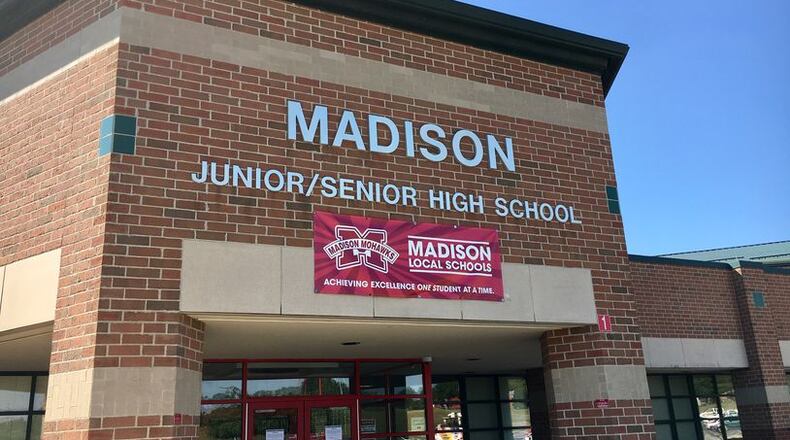Locally and statewide, school income tax issues are far less common than school property tax millage ballot issues.
But the largely rural Madison district has little commercial development and a few business tax revenue sources.
As a largely a bedroom community with an almost entirely residential tax base, a proposed income tax to help fund the schools is the best option, said Madison Superintendent Jeff Staggs.
“This would go for the daily operations of the district,” said Staggs, who added it has been 21 years since Madison saw voters approved new millage for a school operations property tax.
“The district has been financially prudent with its money over the years,” he said.
Currently the district, which has a single, K-12 campus and an annual operating budget of $17 million, has a .5% income tax funding.
If voters on the May 3 elections were to approve the new, proposed 1% income tax, which is a continuing tax issue, local residents would see a total of 1.5% of their earned income go to funding Madison Schools.
The tax hike request was largely prompted by a sharp cut in state funding for the school system from Ohio’s latest biennium budget, which was approved in June with a new school funding formula, said Staggs.
Moreover, Ohio mandates all public school districts to produce five-year budget projections and the latest forecasts from Madison officials show a financial shortfall starting in 2025.
“The state did not help us out. We are set to receive very little money coming from the state and since we receive 55% (of total operating budget) from the state that has really hurt,” said Staggs.
He said campaign signs promoting the proposed 1% income tax will soon be distributed by the private, pro-school tax campaign group and appearing around Madison Twp.
Staggs invited residents with questions about the proposed school income tax to email him at: jeff.staggs@madisonmohawks.org.
About the Author

